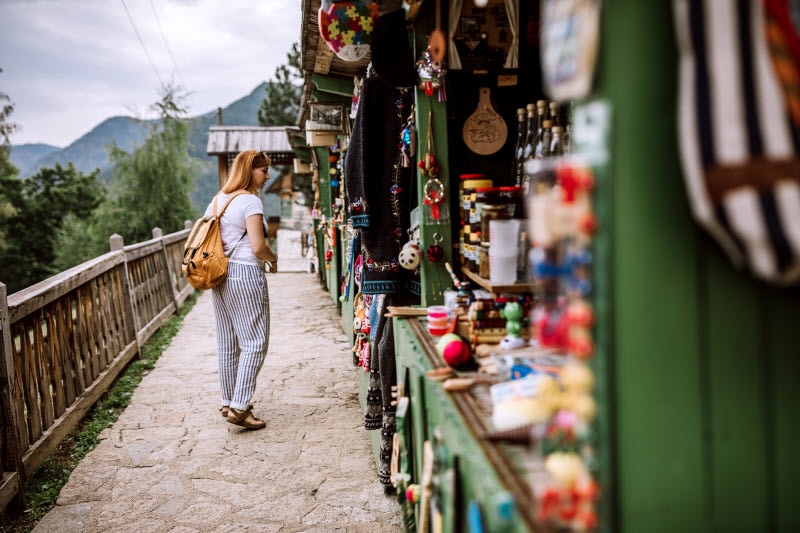Think of ecotourism as the opposite of mass tourism. Instead of flocking to overpopulated resorts and leaving behind a trail of waste, ecotourism is all about responsible travel—immersing yourself in natural areas while ensuring that your visit benefits the environment and the local community.
The International Ecotourism Society (TIES) defines ecotourism as “responsible travel to natural areas that conserves the environment, sustains the well-being of local people and involves interpretation and education.” In short, it’s travel with a conscience that gives back.
How ecotourism began
Like many sustainability-focused movements, ecotourism started gaining traction in the 1970s, spurred by growing concerns over the environmental impact of mass tourism. The term “ecotourist” was first popularized in 1983 by Mexican architect and environmentalist Héctor Ceballos-Lascuráin. By 1988, ecotourism was making waves, with Megan Epler Wood’s PBS documentary “The Environmental Tourist” highlighting how tourism could actually help conserve natural resources and uplift local communities.
How it’s grown
Fast forward to today. Ecotourism has become a major player in the travel industry. It’s often seen as a subset of sustainable tourism, but its reach has expanded. More recently, a new buzzword has entered the scene, “regenerative tourism.” If sustainable tourism aims to leave no trace, regenerative tourism takes it a step further: leaving a place better than you found it.
Sustainable tourism takes a “do no harm” attitude. Regenerative tourism says, let’s make it better for future generations.
What is ecotourism?
At its core, ecotourism is about uniting conservation, communities and sustainable travel. It looks like:
- Minimizing environmental and social impacts
- Respecting local cultures and traditions
- Creating positive experiences for visitors and locals alike
- Providing financial support for conservation and local businesses
- Offering meaningful, educational experiences
- Supporting low-impact infrastructure
- Empowering Indigenous communities and recognizing their rights
Flavors of ecotourism
Ecotourism spans many different experiences and approaches, each with its own unique focus. Some of the key facets include:
Wildlife Tourism: Traveling to observe and support wildlife conservation, such as gorilla trekking in Rwanda or whale watching in Iceland. Ethical wildlife tourism ensures that interactions are non-intrusive and do not disturb natural behaviors.
Agritourism: Visiting farms and rural communities to experience sustainable agricultural practices firsthand. This often includes organic farming, farm stays and learning about traditional agricultural techniques.
Marine Ecotourism: Exploring oceans, coral reefs and coastal habitats while promoting marine conservation. Activities like snorkeling, scuba diving, and kayaking in protected areas help travelers connect with aquatic ecosystems while supporting their longevity.
Cultural Ecotourism: Engaging with Indigenous and local communities to learn about their traditions, crafts and ways of life. This type of tourism fosters cross-cultural understanding and helps preserve heritage.
Geotourism: The focus is on landscapes, rock formations and geological heritage. It involves visiting national parks, caves and other geologically significant sites while respecting distinctive character and features of a place.
Voluntourism: Combining travel with volunteer opportunities to aid conservation efforts, such as tree planting, wildlife rehabilitation or community development projects.
The benefits of ecotourism
Ecotourism isn’t just about traveling responsibly—it’s a deeply enriching way to explore the world. One of its greatest benefits is the exposure to different ways of being and living. Rather than simply observing a destination from a distance, ecotourism immerses you in its natural and cultural landscapes, offering firsthand insight into the delicate ecosystems, local traditions and environmental challenges that communities face. Whether it’s learning about sustainable farming methods in Costa Rica or understanding the significance of marine conservation while snorkeling in a protected reef, every experience fosters a deeper connection to the places you visit.
Ecotourism also plays a crucial role in conservation efforts. Many eco-focused travel initiatives directly fund projects that protect endangered landscapes and wildlife. Take Junglekeepers in Peru, for example—this organization uses ecotourism revenue to buy and safeguard sections of the Amazon rainforest, ensuring that these vital ecosystems remain intact for future generations. By choosing eco-conscious travel experiences, visitors actively contribute to the preservation of some of the world’s most vulnerable environments.
Perhaps one of the most meaningful aspects of ecotourism is the way it supports local communities. Instead of directing profits to large corporations or foreign-owned resorts, this form of travel ensures that money stays within the region, benefiting local businesses, guides and artisans. Whether it’s booking a tour with a community-run cooperative, purchasing handmade crafts directly from indigenous artisans, or staying in an eco-lodge owned by locals, ecotourism strengthens economies and empowers people. It transforms travel into a force for good—where visitors not only experience the beauty of a place but also help sustain it.
Is ecotourism more expensive?
One common perception about ecotourism is that it’s a pricier way to travel. In many cases, this is true. Eco-friendly accommodations, sustainable tours and ethical wildlife experiences often cost more than their mass-tourism counterparts. This is because these businesses prioritize fair wages, conservation efforts and lower environmental impacts, factors that come with higher operational costs.
For example, an eco-lodge in the Amazon that sources food locally and implements renewable energy solutions will naturally have higher expenses than a conventional resort.
However, ecotourism doesn’t always have to break the bank. Travelers can find budget-friendly options by seeking community-based tourism initiatives, choosing local homestays or engaging in volunteer opportunities that offer accommodation in exchange for work.
Additionally, some sustainable destinations provide discounts for visitors who travel during off-peak seasons, bringing costs down significantly. While ecotourism may sometimes cost more upfront, the long-term benefits—both for the traveler and the destination—often make it worthwhile.
The dark side: Greenwashing & over-tourism
Of course, not all so-called “eco” experiences are truly ethical. Greenwashing, as in companies that exaggerate or fabricate their sustainability efforts, is rampant in the tourism industry. Hotels may highlight donations to conservation while underpaying staff. Some “eco-parks” mistreat wildlife under the guise of protection. Watch out for buzzwords like “rescue,” “sanctuary” or “eco-friendly” without real accreditation. A good starting point? Check if the company or destination has a certification from the Global Sustainable Tourism Council, which evaluates businesses on four key factors: conservation, community, culture and commerce.
There’s also the risk of too much tourism, which can drive up prices for locals and push out communities. Places like Dubrovnik in Croatia, overwhelmed by cruise ship visitors, have had to impose strict caps on daily arrivals. The key is balance: Supporting travel economies without harming the very destinations people come to see.
The future of ecotourism
More destinations are shifting their focus from sheer visitor numbers to what’s known as an “economy of meaning.” The goal? Flourishing destinations and communities that dictate what kind of tourism they want, not just what’s profitable. As Chris Baker, founder of OneSeed Expeditions, puts it: “The areas of greatest need are not necessarily in areas of the greatest tourism attractions. We want to use tourism to benefit people outside of those areas.”
When you’re planning your next trip, why not make it one that leaves the world, and its people, a little better than you found it?




